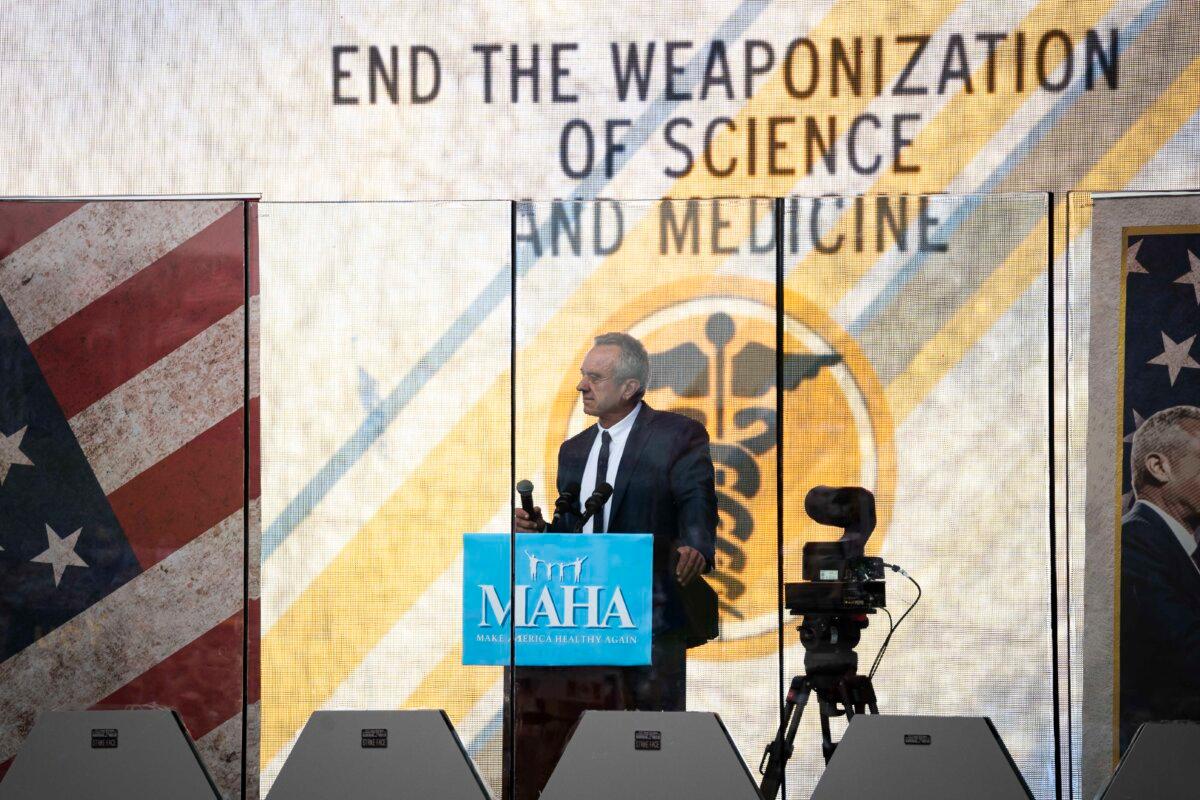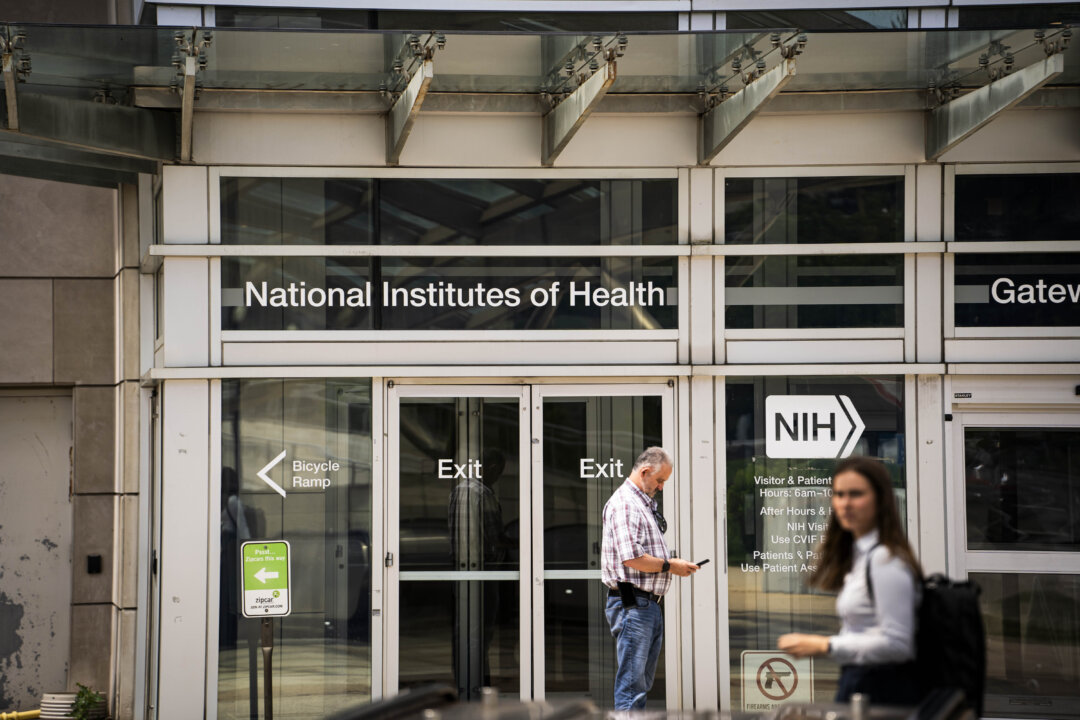Republican lawmakers questioned the public’s trust in the National Institutes of Health during the hearing.
Robert F. Kennedy Jr. has yet to gain Senate confirmation to become secretary of the Department of Health and Human Services (HHS), but his plans to revamp the National Institutes of Health (NIH) and other agencies were a widely discussed topic during a congressional hearing on Nov. 19.
President-elect Donald Trump nominated Kennedy to head the HHS, which includes the NIH, Food and Drug Administration (FDA), and Centers for Disease Control and Prevention, among other agencies. Kennedy has said he will make substantial changes to agencies such as the NIH as HHS secretary.
Before he can begin the role, Kennedy must receive confirmation from the Senate, an outcome that will be more likely with Republicans regaining control of the chamber in January.
Dr. Monica Bertagnolli, director of the NIH, appeared before the House Appropriations Subcommittee on Labor, HHS, Education, and Related Agencies on Tuesday to discuss the President’s Budget for Fiscal Year 2025, which requests $50.1 billion in discretionary and mandatory resources for the NIH.
Bertagnolli, a cancer researcher, is expected to submit a resignation letter to Trump after he takes office in late January.
“This funding will allow the NIH to continue our vital work to support the administration’s goal to prevent more than 4 million cancer deaths by 2047, make targeted investments in mental health, women’s health research, and data science in an environment of tight discretionary spending caps,” Bertagnolli said in her opening testimony.
The House Committee on Energy and Commerce has proposed trimming the NIH’s 27 institutes and centers to 15 and implementing other policy changes such as enhancing oversight for infectious disease research and limiting the number of grants investigators can receive.
At Tuesday’s hearing, Republican lawmakers questioned the public’s trust in the NIH.
Rosa DeLauro (D-Conn.) praised the agency and said the American people do trust the NIH. She encouraged bipartisan cooperation on funding.
“The health of our communities must rise above partisan politics,” DeLauro said.
Dr. Andy Harris (R-Md.) told Bertagnolli that “America is getting sicker not healthier, whether you look at mental health, physical health, life expectancy, maternal mortality.”
“Fact of the matter is, whatever we’re doing, it’s just not working,” he said.
Harris noted that Kennedy and Elon Musk “are going to have a say in this.”
“They realize that we have to make America healthy again. We have to do it efficiently,” he said.
“We have the attitude in America that Ozempic, I guess, is going to cure our nutrition problems. Yet we spend in the SNAP program, for instance, $10 billion on sugary sodas and probably $5 billion to $10 billion on salty snacks.”
Harris told Bertagnolli that the NIH notified his office that the agency doesn’t have a scientist who specializes in studying diet-related diseases.
“Obesity, hypertension, diabetes—these are the drivers of huge costs to our Medicare program. Do you really not have a scientist at NIH who specializes in studying diet-related disease?” Harris asked Bertagnolli.

The NIH director said that “nutrition is fundamental to health.”
“We all understand that. And I can’t think of a single institute or center across NIH that doesn’t in some way or form have research that touches on nutrition,” Bertagnolli said.
Harris told Bertagnolli that she wasn’t answering his question.
“You’ll have to get back to me because obviously you don’t know the answer,” he said.
“I believe that’s incorrect,” she responded about the claim that the agency doesn’t have a scientist who specializes in studying diet-related disease.
Kennedy has said he advocates for vaccine safety and informed consent. Critics have claimed he is an “anti-vaxxer” and would look to ban some inoculations.
On Nov. 19, Rep. Lois Frankel (D-Fla.) asked Bertagnolli what the downside would be if children were not vaccinated.
Frankel noted that “there’s been some talk by some who might have leadership positions in the next administration of discouraging vaccination.”
“If you go back 100 years ago, the leading cause of death—and it was dramatic—was infectious disease. And why did that change? Vaccination—that is the single reason,” Bertagnolli answered.

Bertagnolli said she has seen “individuals who unfortunately were in the womb when their mother got rubella” and that “terrible congenital malformations” happened.
“So it’s not just the consequences even for the individual—it can be mother to child and then finally across society when we see the spread of infectious disease,” Bertagnolli said.
Last week, the NIH debuted the Scientific Management Review Board, a series of meetings in which agency insiders and external scientists will explore reform proposals and provide recommendations for reshaping the agency.
The board will convene every seven years to study the NIH’s authorities and structure and establish priorities for the 27 centers and institutes that form the agency. Upon completion, the board will give a final report to the NIH director and the secretary of HHS.
In September, Kennedy told The Epoch Times that he would revamp the NIH to focus on the causes of the sharp increase in autism, autoimmune diseases, and neurodevelopment disorders in recent decades.
He said little will change until giant or private corporations stop controlling the FDA, CDC, and the Department of Agriculture.
“Their function is no longer to improve and protect the health of Americans,” he said at a roundtable organized by Sen. Ron Johnson (R-Wis.) on Sept 23. “Their function is to advance the mercantile and commercial interests of the pharmaceutical industry that has transformed them and the food industry into sock puppets for the industry they’re supposed to regulate.”

Kennedy also said he wanted to fire 600 employees at the NIH, which oversees vaccine research, and replace them with 600 new employees.
The Epoch Times earlier reported that Dr. Jay Bhattacharya, a professor of health policy at Stanford University, is a top contender to lead the NIH in the next Trump administration.
Bhattacharya was a vocal opponent of the lockdowns and mandates during the COVID-19 pandemic.
During an April 2022 appearance on EpochTV’s “American Thought Leaders,” Bhattacharya said that COVID-19 policy was “the biggest public health mistake in history,” citing both the direct harms it caused to the economy and the indirect harms it caused to children.

